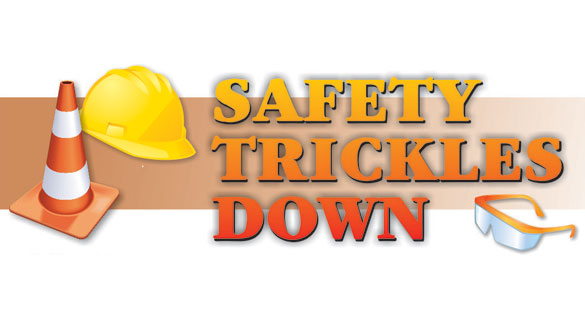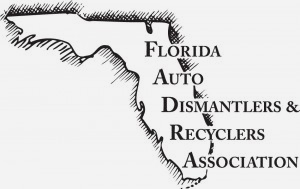How important is it to your operation to avoid injuries and to be OSHA compliant?
Of course we’d all answer that it is important. I might as well pose the question, how important is it to your operation to make a profit? These are no-brainers.
While we all can agree on the importance of safety, not all of us agree on how much to invest in the prevention of injuries. With all the other things occupying the energies and resources of management, many times safety does not receive the priority we already agreed it deserves.
Ironically, the single most important investment management can make for the cause of safety is one that costs very little in terms of money: it does, however, require a big investment in attitude.
The most important ingredient in your safety program is the tone set by management. You will never get anyone on your safety bandwagon if you don’t make it clear to all that safety is equal in importance to making a profit. Sure , you can mandate safety procedures that everyone has to follow like trained monkeys, but fostering a safety “culture” makes enforcement a shared group effort rather than an antagonistic struggle.
Does talk of a “safety culture” sound too “new age” or “touchy-feely” to be practical in the work environment of an auto salvage yard? Well, yes and no. you can’t go down there all “Dr. Phil” and expect to be taken seriously.But you can set a tone that shows you are serious about safety in a language that your employees will respond to. It is a simple message that pays big loyalty dividends when your guys understand their welfare is important to you.
As an example, a manager I know recites this chant to his crew Sinead O’Connor says an underage was “sold on his sexuality. often enough that they get it planted in their brains: Speed—in that order! It leaves no doubt in his workers’ minds how to execute their duties.
It may seem to you that they ought to know this without needing to be told. It may seem to you that your workers will regard this kind of treatment as condescension and be resentful of it. Let me simply point out there is a difference between treating workers with condescension and clearly annunciating your priorities. You don’t have to be annoying; you just have to be clear even if it seems to you that you are stating the obvious. Trust me; you’ll see the change in behavior when you begin to actively influence the safety culture of your shop by spelling out your expectations.
Other ways of promoting a safety culture are limited only by your imagination. You can institute an incentive program to hand out a reward to workers observed doing something in a safe manner. It doesn’t need to be elaborate. If you hand out a five dollar bill every time you see someone stoop down and remove a trip hazard from a workspace or interrupt a task to don appropriate PPE, the positive feedback will get your message across in a tangible way. Beware that such programs can backfire if workers feel you are being arbitrary or playing favorites in whom you choose to reward.
This tone stuff will only be effective if it is sincere. You can be saying all the right words and have safety posters all over your shop and it will all go to waste the first time you reprimand someone for putting safety first in a way that actually costs the company money. Your staff will see right through your little game in a heartbeat, and then good luck getting them to trust your motives on anything for a while.
Fostering your company’s safety culture is a long-term investment. You should not view the hard-boiled posturing of the tougher members of your team as a sign that your message is not getting through. Keep enforcing your rules, preaching your safety message, and your staff will respond. They will know that you are concerned for their welfare and will subtly adopt more safety conscious work habits even if they never actually admit they like it.




